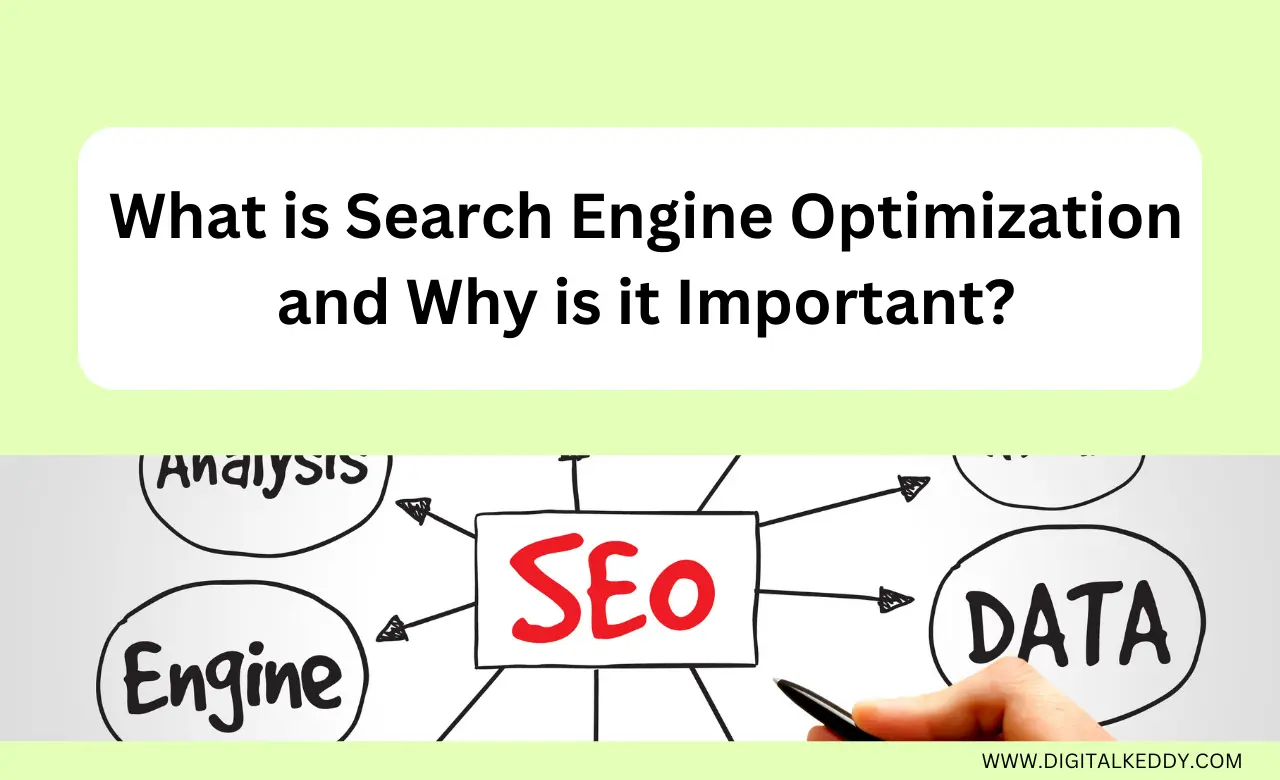
Search Engine Optimization, commonly known as SEO, is the cornerstone of a successful online presence. In the digital era, competition is fierce, and understanding what search engine optimization is and why it is essential can be a game-changer for businesses and individuals. This article delves into the intricacies of SEO, unraveling its significance and providing valuable insights for optimizing your online content.
Role in Website Visibility
Essentially, SEO involves improving a website’s presence on search engines such as Google. When users initiate a search, they are more likely to click on one of the top results. SEO helps your website climb those coveted ranks, ensuring it is among the first results users encounter. This increased visibility translates to higher traffic and greater opportunities for engagement.
Enhancing User Experience
SEO goes beyond keywords and rankings; it creates a seamless and enjoyable user experience. By optimizing your website’s structure and content, you make it more user-friendly. A positive user experience keeps visitors on your site and encourages them to explore further, potentially converting them into customers or loyal followers.
Impact on Organic Traffic
One of the primary reasons SEO is crucial is its impact on organic traffic. In contrast to paid advertising, organic traffic is both cost-free and enduring. By optimizing your site for relevant keywords, you attract users genuinely interested in your content or products, resulting in increased conversion rates and sustainable growth.
Long-Term Business Growth
SEO represents a commitment to the sustained success of your business in the long run. Once your website ranks high on search engines, maintaining that position becomes more manageable. This consistent visibility contributes to brand authority, trust, and ultimately, sustainable growth.
Key Elements of SEO
On-Page Optimization
Refining individual pages to rank higher and earn more relevant traffic. This includes optimizing meta tags, headlines, and images aligned with targeted keywords.
Off-Page Optimization
Focusing on external activities that influence your website’s rankings, such as building quality backlinks, social media engagement, and influencer collaborations.
Technical SEO
Addressing behind-the-scenes aspects like website speed, mobile-friendliness, and indexing. A technically sound website enhances user experience and pleases search engines.
Content Optimization
Content is king. Creating high-quality, relevant, and valuable content attracts visitors and establishes your site as an authoritative source in your industry.
SEO Best Practices
Keyword Research
Understanding the terms your audience searches for allows you to tailor your content. Tools like Google Keyword Planner help identify high-impact keywords.
Quality Content Creation
Creating compelling, valuable content satisfies user intent and encourages other websites to link to yours, boosting authority.
Mobile Optimization
With the rise of mobile users, optimizing your site for mobile devices is non-negotiable. Google prioritizes mobile-friendly sites.
Page Load Speed
A slow website discourages users and hurts rankings. Optimize for quick load times to enhance experience and signal efficiency to search engines.
Common SEO Mistakes to Avoid
Keyword Stuffing
Stuffing content with keywords is counterproductive. Focus on natural integration to maintain readability and value.
Ignoring Mobile Users
Neglecting mobile optimization can result in losing a large portion of your audience.
Neglecting Analytics
Without tracking data, you miss valuable insights needed to improve your strategy.
Lack of Quality Backlinks
Quality backlinks from reputable sites strengthen authority. Recognize their importance in SEO.
Check this out:
Why Digital Marketing is Important
Conclusion
In conclusion, understanding what search engine optimization is and why it is important is essential for anyone navigating the digital landscape. SEO is not a one-time effort; it’s an ongoing strategy that, when executed correctly, propels your online presence to new heights. Embrace the best practices, avoid common pitfalls, and watch as SEO drives your online success.
FAQs
Q1. What is the primary purpose of SEO?
Ans. SEO’s primary purpose is to enhance a website’s visibility on search engines, driving organic traffic and fostering online growth.
Q2. How long does it take to see SEO results?
Ans. The timeframe varies, but noticeable improvements often take a few months. Consistent efforts yield long-term benefits.
Q3. Is SEO only for large businesses?
Ans. Certainly not—SEO is advantageous for businesses of every size. It levels the playing field for smaller enterprises.
Q4. Can I do SEO on my own?
Ans. Basic SEO can be done independently, but professional assistance ensures a comprehensive and effective strategy.
Q5. Why is content crucial for SEO?
Ans. Quality content attracts users and establishes site authority, a key factor in search engine rankings.
Q6. Are social media and SEO connected?
Ans. Yes, social media can indirectly influence SEO by increasing brand visibility and generating valuable backlinks.
